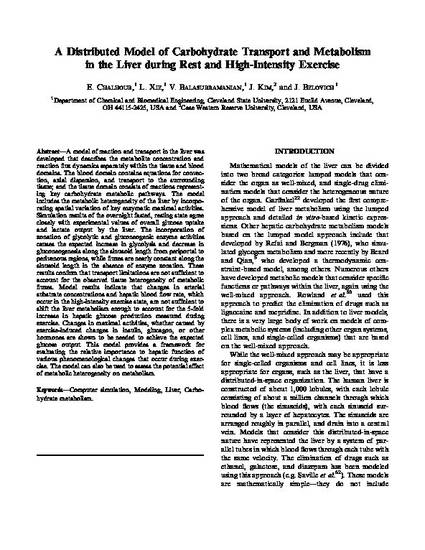
A model of reaction and transport in the liver was developed that describes the metabolite concentration and reaction flux dynamics separately within the tissue and blood domains. The blood domain contains equations for convection, axial dispersion, and transport to the surrounding tissue; and the tissue domain consists of reactions representing key carbohydrate metabolic pathways. The model includes the metabolic heterogeneity of the liver by incorporating spatial variation of key enzymatic maximal activities. Simulation results of the overnight fasted, resting state agree closely with experimental values of overall glucose uptake and lactate output by the liver. The incorporation of zonation of glycolytic and gluconeogenic enzyme activities causes the expected increase in glycolysis and decrease in gluconeogenesis along the sinusoid length from periportal to perivenous regions, while fluxes are nearly constant along the sinusoid length in the absence of enzyme zonation. These results confirm that transport limitations are not sufficient to account for the observed tissue heterogeneity of metabolic fluxes. Model results indicate that changes in arterial substrate concentrations and hepatic blood flow rate, which occur in the high-intensity exercise state, are not sufficient to shift the liver metabolism enough to account for the 5-fold increase in hepatic glucose production measured during exercise. Changes in maximal activities, whether caused by exercise-induced changes in insulin, glucagon, or other hormones are shown to be needed to achieve the expected glucose output. This model provides a framework for evaluating the relative importance to hepatic function of various phenomenological changes that occur during exercise. The model can also be used to assess the potential effect of metabolic heterogeneity on metabolism.
